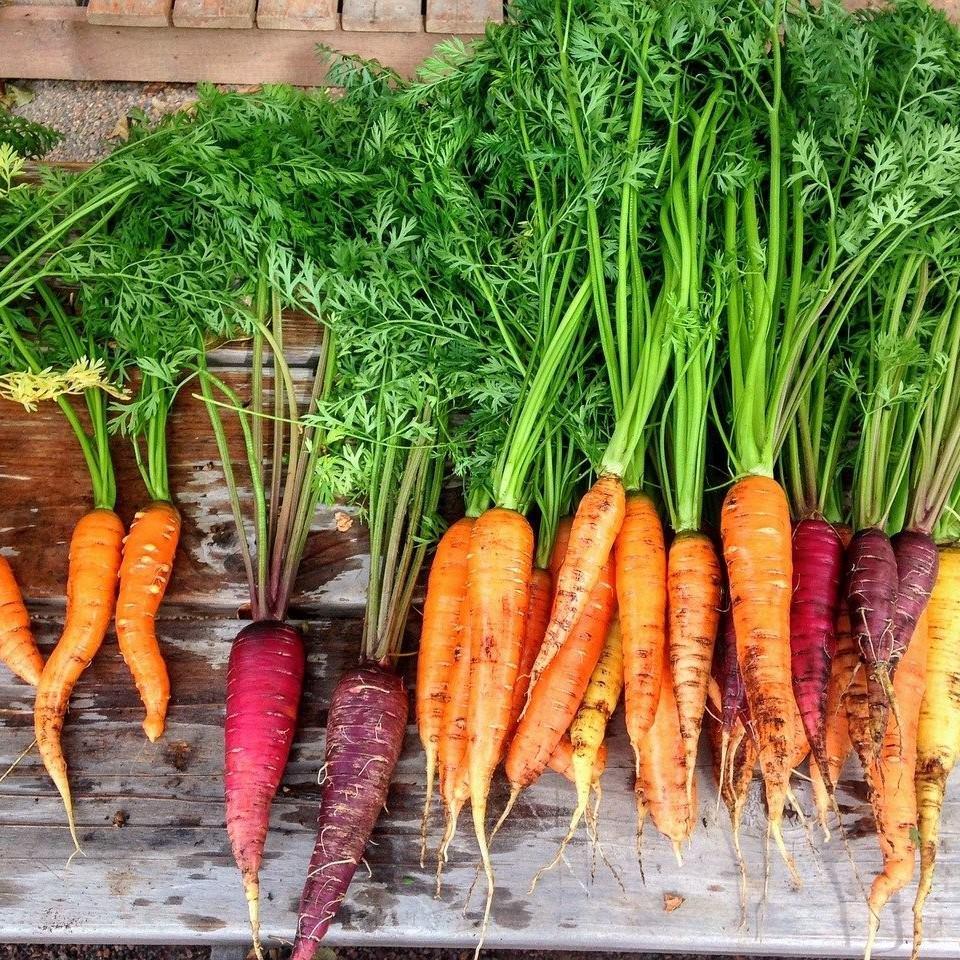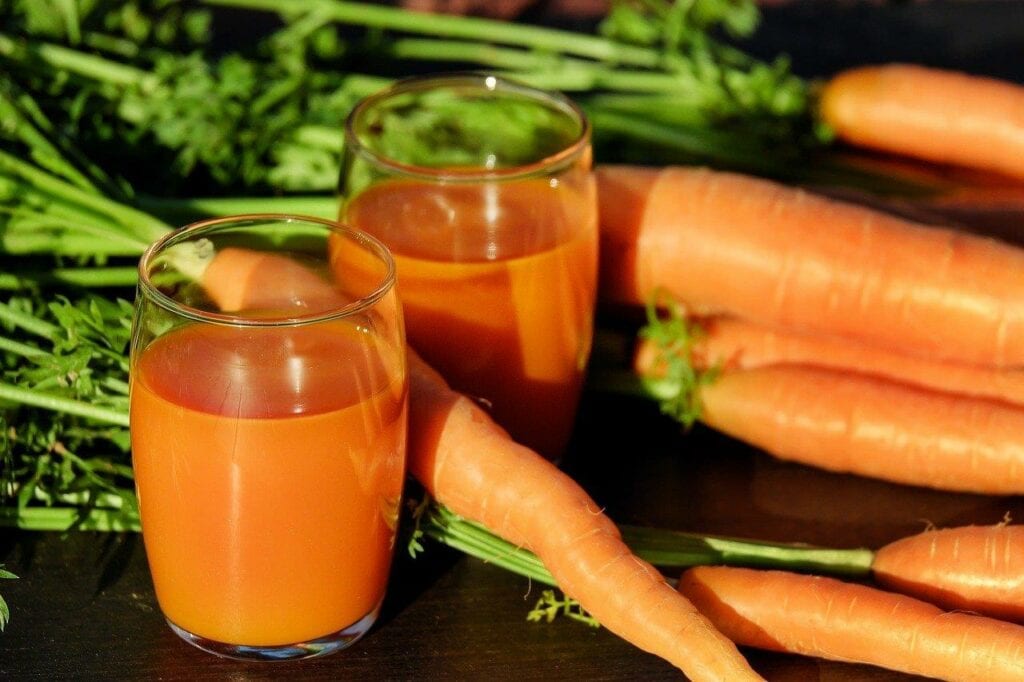
5 Health Facts About Carrots You Should Know
Here are a few health facts about carrots you may not have known. Carrots are one of the most commonly known and eaten vegetables in the world today. They are enjoyed in everything from juices to salads to desserts.
1. Carrots Help Your Vision and A Bunch of Other Things Too.
Carrots are a great source of beta carotene, which provides it’s orange color and converts to Vitamin A in the human body. Vitamin A promotes healthy vision and is great for our immune systems and skin health too.
Beta carotene also acts as an antioxidant, protecting our cells from oxidative damage that can cause chronic diseases like cancer and heart disease. Some studies indicate that it can slow the growth of cancer.
Other health facts about carrots – they also contain biotin, potassium, vitamin B6 and K, and fiber. They are low in calories but high in fiber, giving you a sense of fullness to help with weight loss.
2. Carrots Aren’t Just Orange.
Before the 17th century, carrots were black, white, red, and purple. In the Netherlands, some creative selective breeding created an orange carrot as a tribute to the ruling House of Orange.
Though harder to find today, those other carrot colors still exist and are just as nutritious as they are colorful. While the orange carrots derive their colors from beta carotene, the phytonutrients in the other colors provide different health benefits:
- red carrots contain lycopene, which is excellent for the heart
- purple carrots contain anthocyanins, which act as an anti-inflammatory
- yellow carrots contain high amounts of lutein for eye health
3. Baby Carrots Are Not the Same As Baby Cut Carrots
Those perfectly sized mini carrots in the plastic bags at the grocery store are not actually baby carrots.
True baby carrots are immature carrots picked when they are still small and tender before the hard central core fully develops.
The carrots in the snack bags are mature carrots peeled and cut to a uniform size. They are then rinsed in a weak chlorine solution to kill bacteria and thoroughly rinsed before being packaged up for consumers.
The white coating sometimes seen on pre-cut carrots IS NOT chlorine residue (phew!). When the carrot is peeled of its protective layer, it begins to dehydrate, which is the cause of discoloration.
4. Carrot Greens Are Nutritious and Tasty Too
If you are lucky enough to get the greens attached to your carrots, don’t throw them out! They are a wonderful dark green leafy vegetable.
BUT your carrots must be organically grown (like those from us here at Harvest2U). Commercially grown carrots have greens that are loaded with pesticides because most people just toss the tops.
Get more carrot greens information and serving ideas here.
5. Cooked Carrots are More Nutritious and Healthy than Raw Carrots.
Many people assume raw vegetables always have more nutrients than cooked versions. But a study in 2002 found that cooking carrots increase the bioavailability of beta carotene. That’s fancy science talk, for when you eat cooked carrots, your body absorbs more of the beta carotene than eating them raw.
That doesn’t mean raw carrots aren’t nutritious. They are still a fabulous crunchy snack or salad topping. But, for added beta carotene in your dies, enjoy them cooked as well.
12 Carrot Recipes to get you started

Here are a dozen carrot recipes for you to try, six raw and six cooked, all delicious and nutritious.
